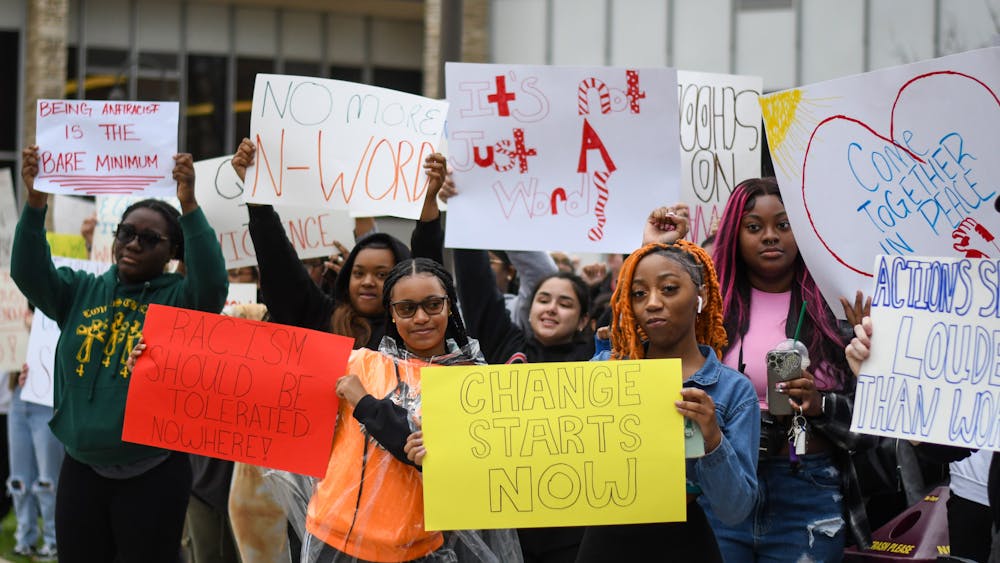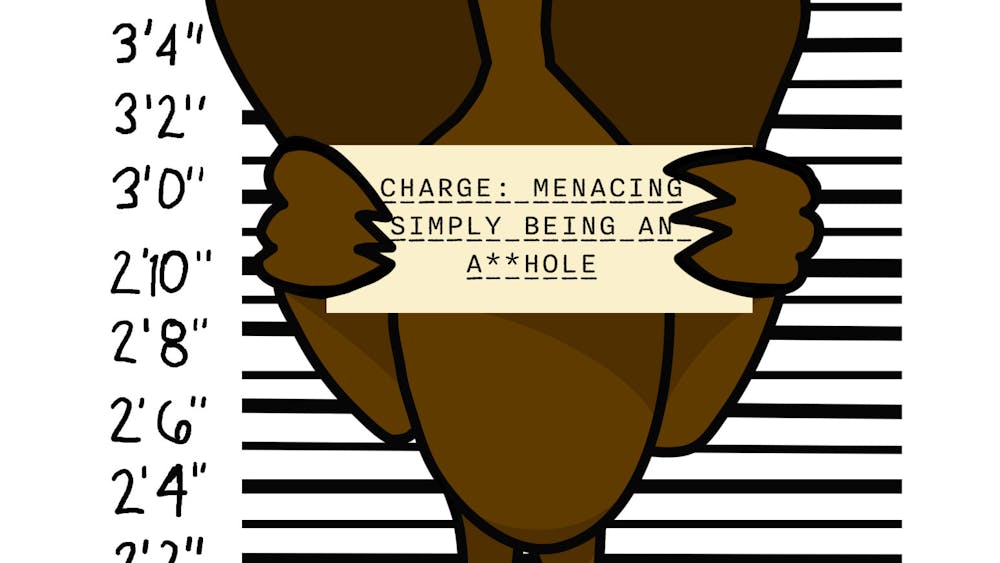Detroit's only hostel opened by CMU alumna, backed by community

Of the four street corners at the intersection of Vermont and Spruce in the Corktown district of Detroit, a building stands on only one.
The others: Open fields with telephone poles, tree saplings and grass growing through the cracks in the sidewalk.
The sign reading "Hostel Detroit" looks like the neon sign of a '60s restaurant. The hostel was founded by Emily Doerr, a 2007 Central Michigan University alumna. It opened for business in April of 2011.
"The neighborhood is incredible," she said. "It was kind of a natural fit to be where we are."
The hostel is centrally located — the bars and shops of the Corktown district are a short walk or bike ride away.
The building used to be Section 8 apartment buildings. Now a diagonal rainbow of iridescent painted brick cascades across the side of the building.
A keypad on the front door provides 24-hour access for lodgers. Inside, there is a small foyer with a guest book, blackboard with messages and events going on and an orange sculpture of a tree.
Beyond that, the place resembles a home: A full kitchen with stacks of cookbooks above the cupboards; board games on the shelf over the washer and dryer; a dining room with a box of video cassettes such as "Buffy" and "The Wedding Singer" and a fireplace-themed space heater.
At capacity, the hostel accommodates 26 people — 16 on the first floor and 10 on the second floor. Part of the upstairs is rented on a month-to-month basis to lodgers looking for more permanent residence in the city.
Art hangs on almost every wall. The portraits, photographs and sculptures have all been donated by community members.
The project as a whole, Doerr said, was community-driven. Doerr shelled out the last of her savings account to get the keys to the door on Nov. 1, 2010 but said she was far from on her own after that.
"I wrote a check to get the keys to the place, and four days later we had our first meeting," she said. "We had done a Facebook and email group, and like 50 people showed up wanting to volunteer."
Fundraising efforts made it possible to get projects like electrical and flooring done professionally, but community members chipped in to donate the smaller things.
"I just kept driving a U-Haul around Detroit and filling it up with books and furniture and blankets and dishes — lots of dishes, everybody has extra dishes — and we just kept getting all this stuff," she said. "Everything is from the community, and that’s what’s so cool about the project. Everybody got to kind of have a hand."
The reason the community can have such a large role in the making of the hostel, Doerr said, is because the hostel is not for profit.
"Typically in hostels, you check in and get charged for parking, locker, sheets and towel. You get charged for laundry, and here you pay up front and you don’t have to dicker and deal with money," Doerr said. "It’s far more cozy, and people are saying they like that. Yes, from a business standpoint, we could make an extra $2 a person charging for lockers, but what’s the point? We aren’t here to make money. We’re here to break even. We could make that money, but if we don’t have to, instead we can provide a better service so people feel more taken care of."
Students from CMU came with Judy Idema, the Honors Program's associate director, to paint rooms upstairs a week before the hostel opened. The University of Michigan architecture school also designed a summer class where 15 students designed and built a multipurpose shed that could be used as a stage for performances or storage unit for bicycles, among other things, and all Hostel Detroit had to do was give money for supplies.
Every weekend in the summer, the hostel is at capacity, Doerr said, and in the winter it gets good business. About half the visitors are international.
"We have paid for no advertising," she said. "People just Google 'hostel and Detroit' and it leads them to us."
Hostel Detroit is the only hostel in the city.
David Naintis, however, is a local. An adjunct professor in the philosophy department at the University of Detroit Mercy, he stayed at the hostel along with three students doing work with immigration as part of an alternative spring break trip.
Nantais said in the alternative spring break program, the students are supposed to stay somewhere community-oriented and safe — not a five-star hotel or a ramshackle motel — and the hostel was a perfect fit.
"This is comfortable, clean and it's nice," he said. "It's not in the suburb, but it's not in the ghetto either. It gives the students a chance, because even though our school is located in the city, our school is 85 percent commuter."
As the University of Detroit Mercy is located in Detroit, some students would be apprehensive about doing an alternative spring break in the city, Nantais explained.
"Last year, we assigned a kid to Detroit and he came in our office literally screaming about how he was sacrificing his spring break and how evil we were, but by the end of the trip he stood up in front of a group of people and talked about how in the end he thought every student should do Detroit (alternative spring break)."
Nantais and Doerr agreed Detroit is a complex and growing city. Doerr said although there were plenty of things she would change about the city, she loves it all the same, and the community drive behind the facility demonstrates Detroit's potential.
"Talk about meeting a need," Nantais said about the hostel's contribution to the city.




